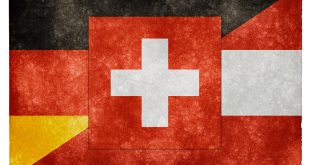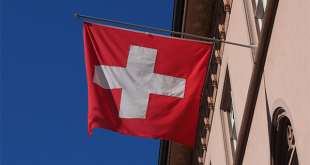Pharmacy studies in Switzerland offer a fascinating academic adventure for those who aspire to work in the world of medicines and health. If you’re curious to understand how medicines are developed, distributed and used to improve public health, then studying pharmacy could be the way forward. In this article, we’ll explore the key aspects of pharmacy studies in Switzerland. We’ll highlight the opportunities they offer and the steps you need to take to get started.
Table of Contents
Why study abroad in Switzerland
Studying pharmacy in Switzerland offers an exceptional academic experience, rooted in the international reputation of the Swiss university system. Swiss universities, among the best in the world, offer an environment conducive to both academic and professional fulfillment.
Switzerland’s diversity displays not only in its landscapes, from the Alps to its sophisticated cities. But it’s also reflected in its multilingual population. Studying pharmacy in Switzerland allows international students to immerse themselves in this cultural and geographical diversity. This goes hand in hand with the possibility of tailoring their experience to their preferences.
And then there’s Switzerland’s dynamic international network, where almost 25% of students are international. This facilitates the creation of social and professional links, opening doors to new cultures and opportunities. What’s more, the efficiency of the Swiss system is evident in the smooth running of transport and universities.
This removes the administrative hassle often encountered abroad. What’s more, Switzerland’s strategic position in Europe gives students the opportunity to travel easily and explore neighboring countries. Finally, Switzerland’s exceptional security reassures international students.
Pharmacy Courses in Switzerland: Duration
To become a pharmacist in Switzerland, you need to complete 5 years of formal training. Pharmacy studies in Switzerland are organized around 2 cycles: a 3-year Bachelor’s degree followed by a 2-year Master’s degree. This Master’s degree then qualifies graduates to sit the examination for the federal diploma of specialist pharmacist, which is required to work in a hospital or pharmacy or anywhere else in the industry.
How to Become a Pharmacist in Switzerland?
Here’s a breakdown of the pharmacy curriculum for foreign students in Switzerland.
Bachelor’s degree in pharmaceutical sciences
The first phase of pharmacy studies in Switzerland lasts 3 years. And it aims to equip students with the basic knowledge needed to enter the Master of Pharmacy program.
Fundamental knowledge covers the natural sciences, biomedical sciences and pharmaceutical sciences. During the first two years of the Bachelor’s degree, students acquire a grounding in anatomy and physiology, as well as mathematics, physics, chemistry and biology.
In the final year, studies become a little more specialized, focusing more on medication. This is the year when students get their first taste of what it’s like to be a pharmacist.
It involves topics such as the search for new medical substances, how drugs are absorbed and transported in the body, how they work, how they are manufactured and how they are administered to patients. Moreover, during this period, some pharmacy students undertake their introductory internship in a pharmacy.
Master’s in Pharmacy in Switzerland
The Master’s degree follows on from the Bachelor’s and prepares students for their future careers. This can be in dispensing pharmacy settings, hospital pharmacy, the pharmaceutical industry, humanitarian organizations, etc. Once they have obtained their Master’s degree, graduates are primarily required to sit the federal pharmacist examination.
As for the structure of the courses, students are entitled to theoretical and practical instruction on the subject of drugs. This includes all facets of drug discovery, design and development, as well as clinical, hospital and community aspects.
Moreover, the master’s-level pharmacy studies in Switzerland also include a personal research project. To this end, students work at a university, industrial or hospital laboratory. And of course, practical internships in pharmacies and hospitals complete the training.
Find out more about how to pursue Master’s and PhD studies in Switzerland.
Assistantship during the master’s degree in pharmacy
During the fifth and final year of the Master’s program, students undertake a period of assistantship to prepare them for the federal diploma. Students, therefore, spend least two-thirds of this period in a public pharmacy. The remaining assistantship period should take place at a hospital pharmacy. The assistantship year ends with the federal examination. In addition, students complete this assistantship under the supervision of an accredited trainer. This is the internship period, when students discover different aspects of working in a dispensary and hospital pharmacy.
Study Pharmacy in Switzerland: Requirements and Admission
Admission to pharmacy studies at Swiss universities and colleges differs according to the country of graduation. Basically, however, applicants must hold a Swiss recognized “maturity” diploma (maturité gymnasiale, maturité professionnelle or maturité spécialisée). This is the equivalent of the French baccalauréat or any other recognized high school diploma.
The prerequisite is that this diploma is the highest in your country of origin. And the candidate must have obtained it after a minimum of 12 years of study, including at least 3 years at upper secondary level. You can also apply for a Bachelor’s degree in pharmacy if you already have a Bachelor’s degree from a University of Applied Sciences or a university of teacher education. Other requirements include superior grades in scientific subjects, mainly biology, chemistry and physics.
For those wishing to enroll in a Master’s program, the requirements include a university bachelor’s degree in a relevant field. Candidates must have completed 3 years of study (180 ECTS) to qualify for equivalence with Swiss Bachelor’s degrees. Other admission requirements vary depending on the university of your choice. Make sure to consult the website of your chosen university, as well as our comprehensive guide on Swiss university admission requirements.
Language proficiency test
Lastly, institutions such as the University of Geneva and the University of Neuchâtel require applicants to have B2-level French skills. If you don’t have this level or can’t certify it, you’ll have to sit a French language test. We therefore recommend that you take the French proficiency tests available in your home country before registering.
The French exam/test at Swiss universities, on the other hand, generally takes place in late August or early September for the autumn semester. For the spring semester, these tests take place in late January or early February. To pass these tests, candidates generally have to pay a registration fee of CHF 100.
Application deadlines
Applicants to pharmacy studies in Switzerland can submit their application online to their university’s registration office. Generally speaking, the deadline for the autumn semester is on April 30 of each year.
Applicants who need to get a student visa or who are registering on the basis of a special application have until February 28 to submit their registration. Visa applications and other requests can take several weeks to prepare.
In addition, the deadline for the spring semester is November 30. However, international students are advised to register for the autumn semester.
Study Pharmacy in Switzerland Fees
Foreign applicants must generally pay a CHF 100 non-refundable fee upon submission of their application.
Switzerland Pharmacy Universities
In Switzerland, you can study pharmacy at the following universities:
- University of Geneva
- University of Basel
- EPF Zurich
- University of Bern
These universities offer complete Bachelor’s and Master’s programs. But there is also the possibility of doing the first two semesters at the University of Neuchâtel or the University of Lausanne and then request a transfer to the University of Basel, Geneva or Zurich.
You can find the official websites of these institutions in our article on the best universities in Switzerland. You’ll also find information on admission requirements, tuition, program duration and other essential information to help you prepare for your studies. Furthermore, you’ll also find information on the cost of studying pharmacy in Switzerland.
Find out more about the cost of living and studying in Switzerland here.
Is Pharmacy a Good Career in Switzerland?
Pharmacy graduates in Switzerland enjoy a wide range of career opportunities after their studies. They can work in retail pharmacies, the chemical, pharmaceutical, veterinary, food and cosmetics industries, as well as in hospitals.
They can also find employment in government departments such as the Federal and Cantonal Departments of Public Health, Swissmedic, the World Health Organization, health insurance companies and so on.
Find out here how to work in Switzerland after graduation.
Others explore laboratory research or go on to teach at universities, although this is a little less widespread. Finally, others see ongoing training as an ethical duty. Many graduates then go on to pursue postgraduate specialist training. In all cases, pharmacists have to apply for cantonal authorization to practice their profession in Switzerland.
This post is also available in fr_FR.




 Aljawaz Your guide to study abroad
Aljawaz Your guide to study abroad















